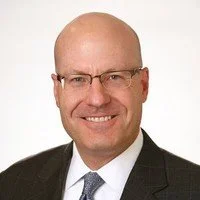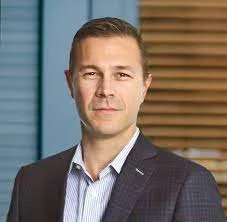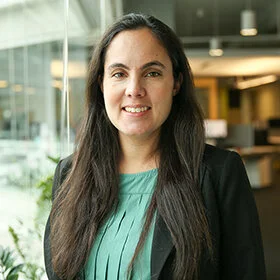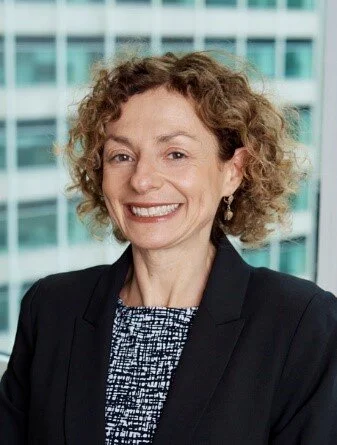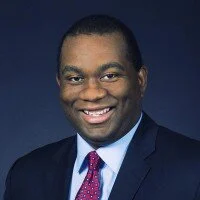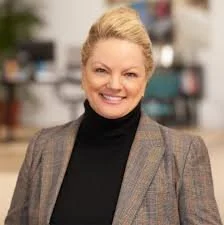Minority businesses, especially those that are owned by African Americans or Indigenous people often lack the flexible capital that comes from family wealth. This money is crucial to the early stages of business growth and the lack of it can permanently stunt an entrepreneur’s ability to succeed. The problem that many entrepreneurs face is the absence of a market-driven replacement for personal wealth.
Read MoreIn every aspect of our lives, where we live, shop, work, learn, drive, and play has us fully connected by the built environment. As a result, the real estate industry has every opportunity to build community, unite cities and launch powerful ideas. Seawall's work in both Baltimore and Philadelphia fully demonstrates these outcomes.
Read MoreWhat is the purpose of business? Many will suggest that the purpose is to create value. Traditionally that means creating a product or service that customers will pay for and selling it for more than it costs you to make. Impact entrepreneurs know there is more to value than that alone.
Read MoreCharitable donations are vital to the social sector. Making money and giving it away so that nonprofits can accomplish critical work is an essential tool. However, many of us are learning that grants and donations are not the only tools for social change. We are finding that certain projects require different tools. And in many cases, we need both a hammer and a drill.
Read MoreThe clean energy transition is underway already. And we must use this transition not just to decarbonize our grid but also to address longstanding economic and racial inequalities tied to energy. We need to think about who ultimately benefits from the projects we invest in. Where are we building wealth and stability? If we don’t ask these questions when designing our clean energy future, then historically marginalized communities will continue to be just that – marginalized.
Read MoreThis article focuses on environmental considerations and identifies options for sustainable or ESG investors who may wish to invest in more energy-efficient alternatives while keeping in mind the highly speculative nature of cryptocurrency investing.
Read MoreThere has been exponential growth in ESG – Environmental, Social, and Governance – investing over the past few years, and global markets increasingly provide investors with opportunities to generate measurable, beneficial environmental impacts alongside a financial return. However, it can be difficult for place-based environmental investors to find opportunities with verifiable local impact. How would you invest in carbon sequestration if you wanted to maximize your investment’s benefit in the Philadelphia region?
Read MoreResponsible investing has clearly come into its own this year, but some organizations still struggle to understand their obligation to promote responsibility in their investments. Many experts now believe that the failure to integrate ESG factors in investment decision-making represents a breach of duty. Faced with an intractable pandemic, an unprecedented recession, and heightened awareness of racial injustice, nonprofits have responded valiantly, deploying resources to help vulnerable communities meet their most basic needs.
Read MoreThis article will touch on some of the differences in investing in public vs. private markets. It will also endeavor to offer some practical questions to ask as you are researching private markets strategies, which are those that provide access to the asset class but have more liquidity than traditional private funds. We will discuss deal flow (and why it matters as much as it does), performance and outlook of public vs. private markets, and some of the challenges associated with traditional drawdown structure funds.
Read MoreWhile both impact investing and ESG investing can deliver compelling financial returns, there are some key differences between the two. Understanding these can help impact investors make better investment decisions and avoid "impact washing."
Read MoreThe COVID-19 pandemic has forced an earlier-than- expected stress test for public companies that aspire to these principles, also known as “stakeholder capitalism.” Companies are facing increasing scrutiny around their reactions to the pandemic, rising inequality among women and communities of color, and calls to combat climate change.
Read MoreFaith Driven Investors are stewards of their resources and those of the communities they support, serve, and lead. During this past year of great upheaval amidst global pandemic, climate crisis, and moral awakening, many Faith Driven Investors have asked these questions over and over again: Where can I invest my money so that my neighbors, my community, the stranger—so that those in need and in deep crisis, and those disenfranchised by entrenched systems of discrimination, systemic racism, and disempowerment, can also thrive and partake in an abundant future? The prospect of embracing diversity and equity in approaches to investing offers us profound opportunities for positive impact.
Read MoreIn 2016, Ben Franklin Technology Partners was energized by a compelling trend: for-profit enterprises proactively, explicitly tackling meaningful problems (instead of exacerbating them). In addition, a growing community of impact-motivated investors tuned in to the idea that an investment could - and should - advance social, environmental, and economic value beyond its financial return.
Read MoreIf you are an investor, you can be an impact investor. CDFIs are the ultimate double bottom line investment – earn a return on your principal and see the impact amplified many times over. The CDFI Fund, the certifying body of CDFIs, notes that a dollar invested in a CDFI generates between 8-14x impact. Now that’s a good return on investment! The pandemic illustrated the financial services ecosystem’s failure to serve poor, disabled, and BIPOC people and communities; yet CDFIs filled the gap and succeeded in serving these overlooked and financially vulnerable populations.
Read MoreThe daunting task of reducing the racial wealth gap and preserving the beacons of hope provided by successful minority-owned businesses requires immediate action and cannot wait for the highly unlikely passage of more sweeping policy changes. ESOPs can be a vital tool for increasing the wealth of Black and brown workers while providing the region’s business owners with an opportunity to get liquidity at fair market value from their businesses and diversify their assets. ESOPs do not merely provide business owners with an opportunity for liquidity; they are also conduits for transformative impact for employees, companies, business owners, and the communities in which they are established.
Read MoreLevering the power of the food sector, the collective will deploy integrated capital investments in area food businesses to grow community health and economic resilience, including through increased ownership and wealth-building opportunities for Camden families. We do not anticipate establishing a “fund” in the technical sense but rather a networked collaboration of local and regional entities leveraging their respective balance sheets and knowledge and relationship assets to facilitate 20 to 25 investments in Camden and its surrounding areas over a three-to-five-year period.
Read MoreTourism is an industry that is crying out for impact-driven entrepreneurs and investors to do what they do best: challenge traditional norms; put capital into new places; support diverse and dynamic entrepreneurs; find ways to ensure financial returns while prioritizing people and the planet, and move industries stuck in old paradigms into a future that enhances well-being for us all.
Read MoreThe pandemic is a humanitarian crisis. And with all crises, there is an opportunity for real systemic change. As the devastation from COVID becomes fully realized, there will be a massive wave of nonperforming loan exposure. Lenders know this is coming, but what they may not fully grasp is that they have the ability to avoid it. Refinancing these loans for credit-challenged low-income consumers to a more humane lending model for existing borrowers could change the outcome for both the lender and the borrower.
Read MoreThe pandemic has highlighted the fractures in our foundation on so many levels: economic, racial, gender, or political. However, this has been going on for years, and we are seeing the results in real-time. The need for innovative solutions to economic sustainability is at a crucial juncture. Our economy is hanging on by a thread along with its people. It is time for real and practical solutions to address society’s needs and bring us into the future in a more equitable and sustainable way.
Read MoreAs growing economic inequalities and racial justice demonstrations converged, against the backdrop of a pandemic, The Enterprise Center in West Philadelphia presented a solution - The Pro Disinfect Coalition. The $1M initiative’s aim? To transform traditional Black and Brown janitorial and cleaning businesses into certified disinfectors positioned to receive investment and win new contracts in a COVID-19 world. The Enterprise Center partnered with Social Venture Circle to raise patient capital in the form of grants and 0% interest loans.
Read More



